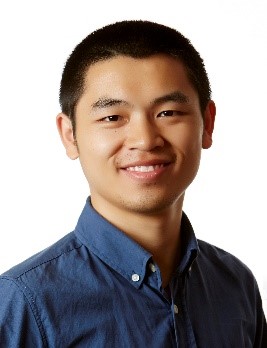
李成俊
澳大利亚墨尔本大学哲学博士
广州大学大湾区环境研究院特聘副教授
“广东省博士后人才引进计划“引进人才
Tel: +86 13688096823
Email:work: cli@gzhu.edu.cn
个人简介
李成俊,男,广州大学大湾区环境研究院特聘副教授。1987年10月生于四川, 澳大利亚墨尔本大学博士,“广东省博士后人才引进计划”引进人才。长期从事植物生理生态学与环境科学方面的研究工作,具有深厚的植物学背景和极强的跨学科科研能力和经验。博士期间主要从事十字花科植物入侵和杂交后繁殖系统的遗传研究,包括它与授粉者的相互作用及其对入侵物种的种群动态和植物物种保护的影响。目前主要研究方向为纳米材料在植物体内的应用、纳米材料和其他重要污染物(如砷)在植物体内的富集及其潜在危害(食品安全)。致力于利用纳米技术增强植物现有功能,突破纳米技术在植物学领域的研究瓶颈,从而为提高植物抗逆性、增强光合作用效率、提高作物产量提供创新的解决思路。同时,积极探索利用纳米技术为植物添加全新功能(如探测土壤和空气中有害物质),从而实现环境可持续发展。此外,致力于研究纳米材料及其他重要污染物从源头到植物体内富集的全过程,并结合地区差异以及膳食结构的影响,综合评价其对环境以及人类健康的影响。多项工作在PNAS、ES&T Letters、Environmental International、Science of the Total Environment、Environmental Science: Nano、Critical Review in Environmental Science and Technology、Annals of Botany等国际著名期刊上连续发表,并得到国际同行的好评。近两年发表SCI论文20余篇,其中第一/通讯作者11篇。主持澳大利亚Australian Research Council Discovery Project下属子项目和国家自然科学基金青年基金项目。参与了Australian Research Council Discovery Project、国家科技支撑项目、国家自然科学基金重点项目和面上项目等国家级项目。
教育背景
2013.09 – 2018.04澳大利亚墨尔本大学,生态与进化生物学,哲学博士
2010.09 – 2013.06四川大学,生态学,理学硕士
2006.09 – 2010.07 四川大学,生态学,理学学士
研究方向
1. 纳米材料在植物体内的应用,即植物纳米技术
2. 纳米材料在植物体内的富集及其潜在风险
3. 重金属污染物在作物体内的富集及其健康风险
科研项目
2021 – 2023,国家自然科学基金青年基金项目:稀土上转换纳米颗粒在植物体内的摄入迁移及其毒理研究(项目编号:22006025),主持
2021 – 2025,国家自然科学基金重点基金项目:纳米细胞效应的大数据构建及智能模拟预测(项目编号:22036002),参与
2021 – 2025,国家自然科学基金面上项目:基于肝脏类器官的纳米材料毒性效应及毒性机制研究(项目编号:22076033),参与
2013 – 2018, PhD Project: Understanding the breeding system of hybrids between two invasive plants: C. edentula and C. maritima ,主持
2014 – 2017, Discovery Project: Interactions among invading species: transient hybridization and rates of replacement,参与
2011 – 2015,国家科技支撑项目:龙门山地震带震损坡体生态修复技术研究与示范(项目编号:2011BAK12B04),参与
工作经历
2021.08至今 广州大学大湾区环境研究院特聘副教授
2019.07 – 2021.08 广州大学大湾区环境研究院博士后研究员
2018.10 – 2019.07 澳大利亚墨尔本大学Bio21研究所研究助理
2017.03 – 2018.09 澳大利亚墨尔本大学兼职助教及讲师
2014.10 – 2017.01 澳大利亚墨尔本大学School of BioSciences研究助理
主要文章
Ø 2021
1. Li, C., Gao, Y., He, S., Chi, H.-Y., Li, Z.-C., Zhou, X.-X. and Yan, B. (2021). Quantification of Nanoplastic Uptake in Cucumber Plants by Pyrolysis Gas Chromatography/Mass Spectrometry. Environmental Science & Technology Letters, 2021, 8(8): 633–638
2. Li C, Zhong H, Zhang W. Reply to Comments on “A Scientometric Analysis of Recent Literature on Arsenic Bioaccumulation and Biotransformation in Marine Ecosystems”. Bulletin of Environmental Contamination and Toxicology, 2021, DOI: doi.org/10.1007/s00128-021-03354-w
3. Li, C., Shen, J., Zhang, J., Lei, P., Kong, Y., Zhang, J., Tang, W., Chen, T., Xiang, X., Wang, S., Zhang, W. and Zhong, H. (2021). The silver linings of mercury: Reconsideration of its impacts on living organisms from a multi-timescale perspective. Environment International 155, 106670.
4. Li C*, Ohadi S, Mesgaran MB. Asymmetry in fitness-related traits of later-generation hybrids between two invasive species. American Journal of Botany, 2021, 108(1): 51-62.
5. Sha J, Xiong H, Li C, et al. Harmful algal blooms and their eco-environmental indication, Chemosphere, 2021, 129912.
6. Jia J, Zhang W, Wu Y, Zhang X, Li C, et. al. Mitigation of Obesity-Related Systemic Low-Grade Inflammation and Gut Microbial Dysbiosis in Mice with Nanosilver Supplement. ACS Applied. Bio Materials, 2021, 4 (3), 2570-2582.
Ø 2020
7. Li C, Yan B. Opportunities and challenges of phyto-nanotechnology. Environmental Science: Nano, 2020,7(10): 2863-2874
8. Li C, Mesgaran MB, Ades PK, Cousens RD. Inheritance of breeding system in Cakile (Brassicaceae) following hybridisation: implications for plant invasions. Annals of Botany, 2020, 125(4): 639–650.
9. Li C, Wang J, Yan B, Miao A-J, Zhong H, Zhang W, Ma LQ. Progresses and emerging trends of arsenic research in the past 120 years. Critical Reviews in Environmental Science and Technology, 2020. DOI: 10.1080/10643389.2020.1752611.
10. Li C, Zhong H, Zhang W. A scientometric analysis of recent literature on arsenic bioaccumulation and biotransformation in marine ecosystems. Bulletin of Environmental Contamination and Toxicology, 2020, 104(5): 551-558.
11. Sun Q, Li C*. Germination characteristics of Cakile edentula (Brassicaceae) seeds from two different climate zones. Environmental and Experimental Botany, 2020, 180: 104268.
12. Zhou X-X, Jiang L-W, Wang D-J, He S, Li C, Yan B. Speciation Analysis of Ag2S and ZnS Nanoparticles at the ng/L Level in Environmental Waters by Cloud Point Extraction Coupled with LC-ICPMS. Analytical Chemistry, 2020, 92: 4765-4770.
13. Jiang L, He S, Wang D Li C, Zhou X, Yan B. Polyvinylidene fluoride micropore membrane for removal of the released nanoparticles during the application of nanoparticle-loaded water treatment materials. Journal of Cleaner Production, 2020, 261: 121246.
Ø 2019
14. Li C, Cousens RD, Mesgaran MB. How can natural hybridisation between self-compatible and self-incompatible species be bidirectional? Weed Research, 2019, 59(5): 339-348.
Ø 2019前
15. Mesgaran MB, Lewis MA, Ades PK, Donohue K, Ohadi S, Li C, Cousens RD. Hybridization can facilitate species invasions, even without enhancing local adaptation. Proceedings of the National Academy of Sciences, 2016, 113(36): 10210-10214.
16. Chen Z, Chen W, Li C, Pu Y, Sun H. Effects of polyacrylamide on soil erosion and nutrient losses from substrate material in steep rocky slope stabilization projects. Science of The Total Environment, 2016, 554: 26-33.
17. Chen Z, Wang R, Han P, Sun H, Sun H, Li C, Yang L. Soil water repellency of the artificial soil and natural soil in rocky slopes as affected by the drought stress and polyacrylamide. Science of The Total Environment, 2018, 619: 401-409.
奖励及荣誉
2019 – 2021 “广东省博士后人才引进计划”引进人才
2019 – 2020 广州大学优秀博士后
2013 – 2018 Melbourne International Scholarship – Melbourne University
2013 – 2018 CSC Scholarship – China Scholarship Council
2016 Science Abroad Travelling Scholarships (SATS)
2015 BioSciences RHD Travel grant
2011 – 2012 四川大学年度优秀研究生
2010 – 2013 国家二等奖学金

